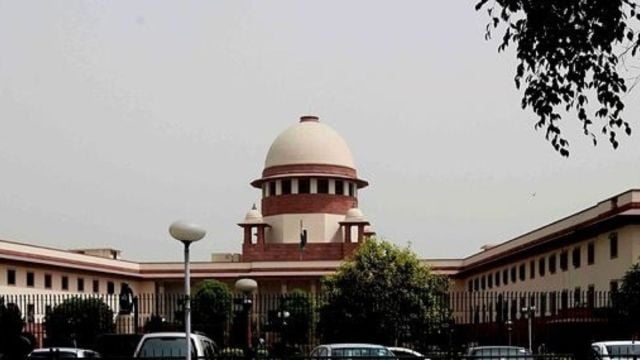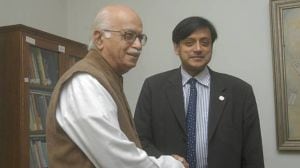Stay updated with the latest - Click here to follow us on Instagram
‘We have to stop somewhere’: Supreme Court bars new petitions in Places of Worship Act case, delays hearing to April
The Places of Worship Act prohibits the conversion of any place of worship and provides for the maintenance of its religious character as it existed on August 15, 1947.
 To a query on whether fresh intervention applications filed would be allowed, CJI Khanna said that too many pleas were being filed and there is a limit. (Express Archive/Amit Mehra)
To a query on whether fresh intervention applications filed would be allowed, CJI Khanna said that too many pleas were being filed and there is a limit. (Express Archive/Amit Mehra)The Supreme Court on Monday adjourned its hearing on petitions for and against the controversial Places of Worship Act, 1991, to April 2025 even as it refused to entertain fresh writ petitions in the matter.
Chief Justice Sanjiv Khanna, presiding over a two-judge bench, expressed dismay over the large number of petitions being filed in the matter and said, “Somewhere we will have to stop it.”
The Act prohibits conversion of any place of worship and provides for the maintenance of its religious character as it existed on August 15, 1947. However, the Ram Janmabhoomi-Babri Masjid issue in Ayodhya was kept out of its purview.
Refusing to entertain further petitions, the bench – also comprising Justice Sanjay Kumar – asked those who had filed writ petitions but on which no notice was issued so far, to file intervention applications instead. “We are constrained to pass this order as there are a large number of writ petitions raising new and additional grounds etc,” it said.
“Fresh applications except those writ petitions which are being disposed of in terms of this order will be allowed only if new grounds are raised,” the order said.
Lawyers for the parties who have filed the fresh writs then requested that the same be treated as intervention applications instead of them having to file applications again, but the CJI said that allowing this would lead to several logistical problems. “So pending writ petitions on which notices have not been issued will be treated as disposed of in terms of this order. File an application for intervention,” he said.
Adjourning the hearing, the CJI said the matter was to be heard by a three-judge bench but he was sitting in a two-judge combination through the day. “Relist in the week commencing April 1, 2025, before the three-judge bench,” the court directed.
Appearing for the main petitioner Ashwini Kumar Upadhyay, Senior Advocate Vikas Singh pointed out that the Centre had not filed its reply in the matter. He urged the court to give only one more opportunity to the government to respond. “Last chance may be given to the Centre,” he submitted.
The CJI, however, refused to do so and said fresh petitions and fresh grounds were being raised even now.
Singh said that cannot be an excuse for the Centre not to file its reply. He pointed out that notice was issued on Upadhyay’s petition way back on March 12, 2021. “That’s no ground for the Union of India to not file its reply. They should file the reply to the original petition at least. Please give them the last chance. Otherwise this will never be heard,” the senior counsel submitted.
CJI Khanna said that the court has asked the Centre to complete pleadings. He added that the court will also have to formulate the questions of law to be considered when the detailed hearing starts.
Singh pointed out that the questions had already been formulated in October 2022. The CJI, however, said that during the last hearing, it was observed that they may need a relook.
The court also said that two appeals which have a bearing on the Ancient Monuments Act will remain tagged along with the petitions for and against the Places of Worship Act and it will decide at the next hearing whether to de-tag them.
On December 12, 2024, a three-judge bench of CJI Khanna and Justices Sanjay Kumar and K V Viswanathan had barred civil courts across the country from registering fresh suits challenging the ownership and title of any place of worship and from ordering surveys of disputed religious places till further orders.
The court had also asked the Centre to file its response in the matter in four weeks’ time, saying, “We want the Union of India’s position to be brought on record”, and had fixed the next hearing on February 17.







